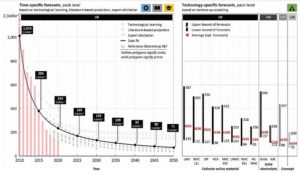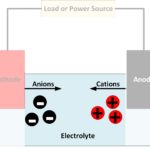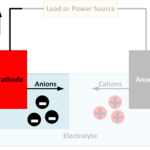Researchers from the University of Münster in Germany looked at 53 studies that estimated advances in lithium-ion, solid-state, lithium–sulfur and lithium–air batteries. Their conclusion: Study authors generally expect continuously declining battery costs regardless of raw material price developments. But there are large cost uncertainties that will remain a key challenge for researchers and industry in the future.
Münster researchers say the relevant publications cluster around four forecasting methods: technological learning, literature-based projections, expert elicitations, and bottom-up modeling. The Münster researchers consolidated 360 extracted data points into a pack cost trajectory that reaches a level of about $70/kW-h in 2050, and 12 technology-specific forecast ranges that indicate cost potentials below $90/kW-h for advanced lithium-ion and $70/kW-h for lithium-metal based batteries. Recent studies show confidence in a more stable battery market growth and, across time-specific studies.“Lithium-ion batteries have not yet reached their cost limit. The regression of system cost expectations shows a reduction to $70/kW-h by 2050 — about half of today’s market prices,” explains Lukas Mauler from the Institute of Business Administration at the Department of Chemistry and Pharmacy at Münster University and Porsche Consulting GmbH, and lead author of the published analysis. Scientists expect additional cost potentials compared to today, especially through advanced battery materials such as high-energy and high-voltage cathode materials. Further, the studies show that post-lithium-ion technologies, which are not yet commercialized today, have the potential to become economically competitive.
The researchers say most studies based on bottom-up modeling examine lithium-ion battery technology and base their estimates on a variety of cathode technologies. Among those, advanced high-voltage or high-capacity materials indicate the lowest potential cost levels that reach down to $84/kW-h. Among concepts that integrate a lithium-metal anode, sulfide solid-state battery, lithium-sulfide battery and lithium-air battery, studies forecast cost advantages and a minimum value of $70/kW-h.
The authors caution that uncertainty in the level of forecasted values on chronological and technological level will remain a key challenge for researchers and companies in the field. This uncertainty reflects different assumptions or beliefs regarding market expectations, material prices, and technological specifications underlying each of the examined studies.






Tell Us What You Think!